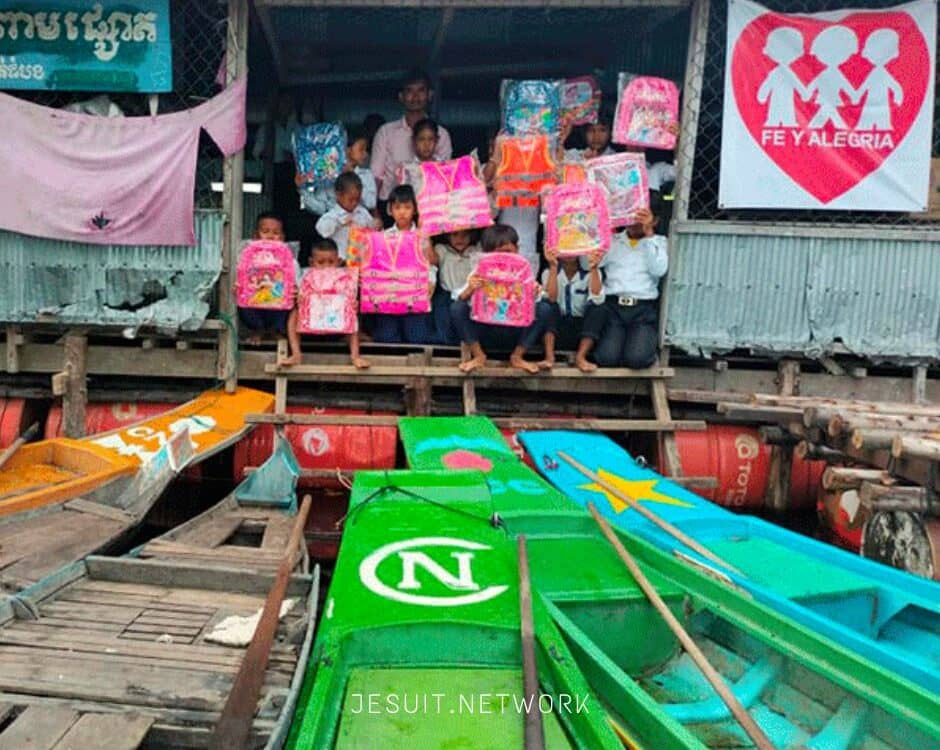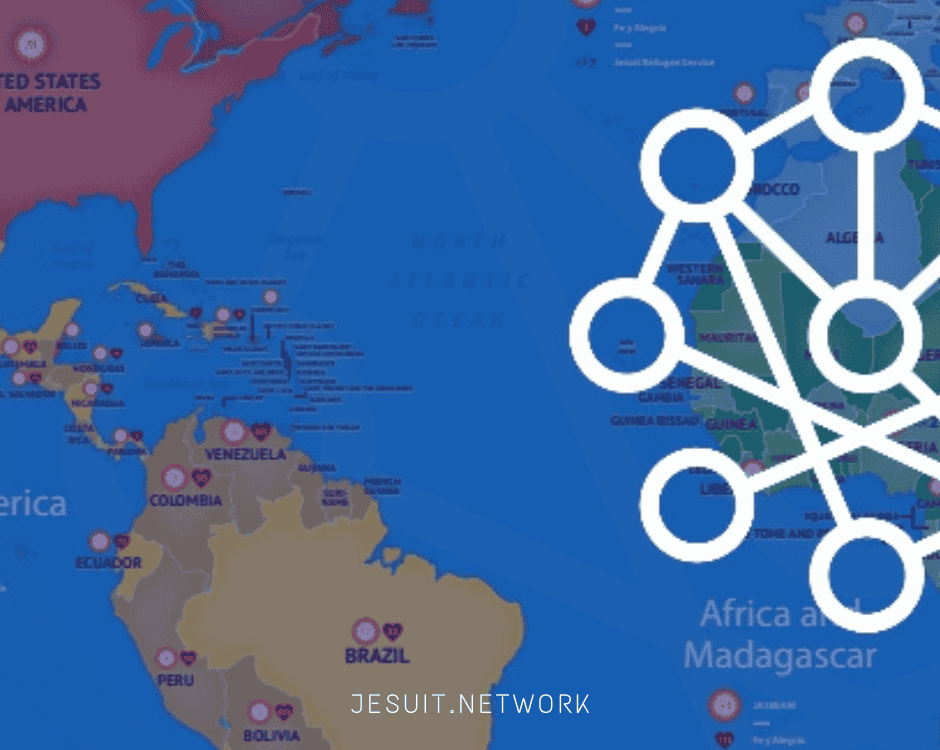Este sitio web utiliza cookies para que podamos ofrecerle la mejor experiencia de usuario posible. La información sobre cookies se almacena en su navegador y realiza funciones como reconocerle cuando vuelve a nuestro sitio web y ayudar a nuestro equipo a comprender qué secciones del sitio web le resultan más interesantes y útiles.
JAMIA: Discernment, collaboration and action
How do Muslims see us? The silence around the table that greeted the question was deep against the backdrop of firecrackers intermittently exploding outside. Fr Victor Edwin SJ, Director of Vidyajyoti Centre for Christian Muslim Relations in New Delhi, softly reiterated the question to emphasise the need for the research project that he and Fathers Heru Prakosa SJ, Counsellor for Dialogue with Islam at the Roman Curia, and Juan Carlos Pallardel SJ, one of the Coordinators for Dialogue of the Jesuit Conference of South Asia, had been initiating these past two years.
It was January 2, the last day of the three-day conference which started on December 31 of Jesuits among Muslims in Asia (JAMIA) held at St Xavier Residence in Negombo, Sri Lanka. Although it was a rather unusual way of welcoming the new year, the sense of hope for turning visions into action made it an extraordinary experience for us who were privileged to be there.
After two days of sharing reflections on lived experiences, activities engaged in and papers written in the past two years since their last meeting – the question gave everyone pause. How do Muslims see us?
To me, being one of the two lay women in the conference, the question brought to light the enormity of the challenges that the Jesuits face in working with Muslims in this richly diverse region. I have been experiencing similar challenges in my own efforts at promoting various forms of Muslim-Christian dialogue around Metro Manila and Mindanao, Philippines these past 20 years. Throughout the course of my work I have been consciously aware of myself as a woman and a Christian building mutually respectful relations with mostly male Muslim and Christian religious leaders in the field. In this self-awareness I have learned to find my way around the challenge of trust-building that is essential to the endeavour.
So, the question piqued my curiosity in this gathering of JAMIA. It was interesting to be able to see from perspectives other than my own how Christians and Muslims perceived each other and the attitudes they had toward one another. The conversation around the table deepened my appreciation for the importance of understanding socio-cultural differences in our attempts at moving interreligious dialogue initiatives forward in South and Southeast Asia where Christians are a minority, and relational contexts vary significantly. Whatever findings the research would yield would certainly be beneficial to the dialogue ministry of JAMIA in the region.
With the encouraging presence and support of Jesuit Conference of Asia Pacific President (JCAP) Fr Antonio F Moreno SJ, the small but influential group of 10 Jesuits mulled over the challenges of seeking for answers and ways of better understanding what needs to be done in building richer and mutually respectful collaborative relationships with Muslims. This year’s participants were some highly accomplished Jesuit veterans in the field who got together with their younger brothers from South and Southeast Asia. It was heartening to note that among them the spirit of Christian-Muslim dialogue is strong, and the vision is clear although the “labourers” are few.
The conference programme was prepared by Fr Greg Soetomo SJ, JCAP Coordinator for Dialogue with Islam, to help provide us with a sense of direction. Fr Soetomo, with Fr Edwin, planned, organised and successfully facilitated the conference. But, as it usually is when bright minds collaborate to find ways of articulating what is at the heart of things, many ideas came to the fore that needed coherence in order to be translated into simple doable actions. Fr Moreno gently intervened at certain points in the discussion with helpful comments and questions that encouraged everyone to exercise discernment in the process of planning doable courses of action.
Fr Moreno emphasised discernment as essential to the process of planning for a JAMIA programme that would give rise not only to a collection of intermittent activities and projects but to a coherent and systematic five-year plan that is responsive to the “call” to service among Jesuits labouring in this ministry. This plan would be useful in drafting project proposals for possible funding, he said – a challenge and an invitation that I see JAMIA already beginning to respond to with concrete plans of action for 2019.
Among the things that I found very promising was the information shared by Fr Tom Michel SJ concerning an earlier meeting he had with representatives of the Asia Muslim Action Network (AMAN), in which they expressed interest in engaging in collaborative work with JAMIA. This possibility was welcomed, and Fr Michel was asked to reach out to AMAN and arrange for a meeting with them and him, in the company of Fr Soetomo, in Thailand in the next couple of months to explore possible ways of initiating a JAMIA-AMAN collaboration. There was also the suggestion to involve the Association of Jesuit Colleges and Universities (AJCU) in Asia Pacific beginning with Ateneo de Davao University (Philippines), Sanata Dharma University (Indonesia), and the Jesuit Higher Education in South Asia (JHESA).
Collaboration was mentioned as another essential to the success of JAMIA in the coming years. Everyone recognised the need to invite more Jesuits especially from Malaysia, Singapore and Bangladesh. In this spirit, it was good to have the presence of Fr Jean-Marc Balhan SJ with us. He had earlier travelled from Ankara, Turkey to Sri Lanka to attend the meeting with Jesuits from Pakistan, then he decided to stay on longer for JAMIA. His contributions to the discussion were helpful and much appreciated.
The value of having lay practitioners from different countries participate in the conferences was recognised. This year was the first time for JAMIA to have two lay women participants – Mona Lisa Pangan, in her capacity as Coordinator for Interreligious Dialogue in Xavier University, Philippines; and I, in my capacity as a practitioner of interreligious dialogue (through the NGO called The Peacemakers’ Circle), and as lecturer on Muslim-Christian Dialogue at the Ateneo de Manila University, Philippines.
Although, at first, Mona and I were rather intimidated by the experience of being the only two women among the Jesuits, we felt honoured and deeply grateful for it. This field of endeavour is not easy. The challenges are great, and the co-creative responses needed to address them are demanding and, in some cases, even dangerous and life-threatening. Few seem to have the courage and the wherewithal to respond to the “calling”. Mona and I appreciated the chance to speak and be heard. It was good to feel that we were “not alone”. We were in the good company of brothers among the supportive Jesuit fathers.
While JAMIA meets every two years, Fr Moreno suggested that a core team be created that would meet yearly in order to more effectively address the increasingly complex demands of its growing programme. Initial plans for JAMIA 2020 were shared by Fr Soetomo. The Philippines and Thailand were identified as possible venues. And, upon considering the availability during the holiday season of local organising partners, December 27 to 29 were voted as favourable dates. Some suggestions for possible themes were offered, but everyone agreed that this could be finalised later.
The conference ended on a hopeful note, and with the gracious assistance and hospitality of Fr Dexter Frederic Gray SJ, Provincial of Sri Lanka, and his community of priests and staff at St Xavier Residence, the new year gathering of JAMIA in Sri Lanka was fruitful and filled with promise.
by Maria Teresa “Marites” Guingona-Africa PhD





